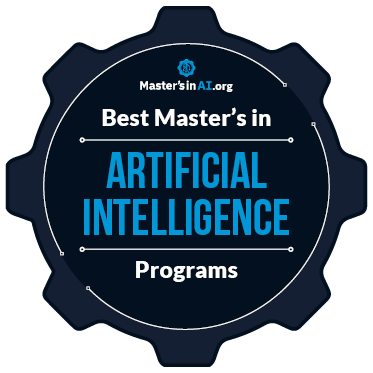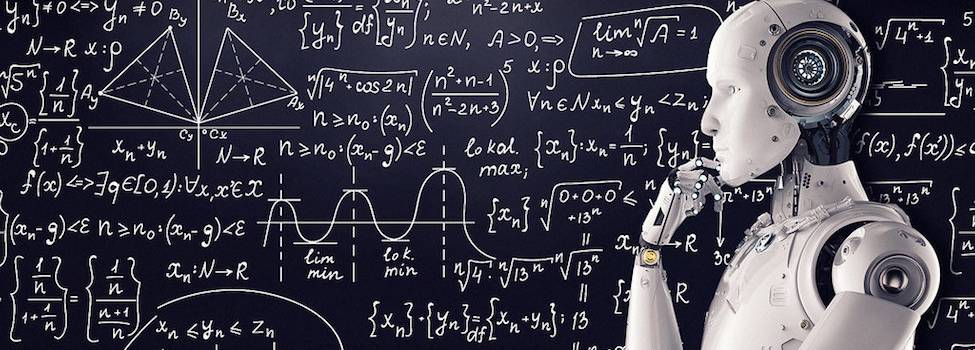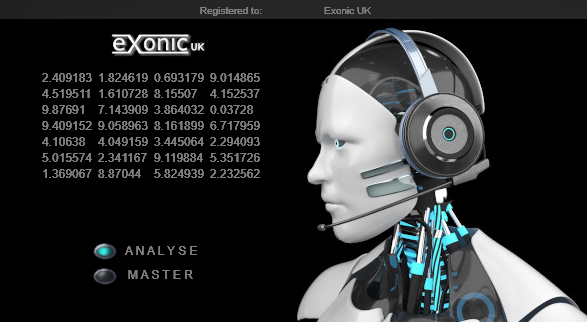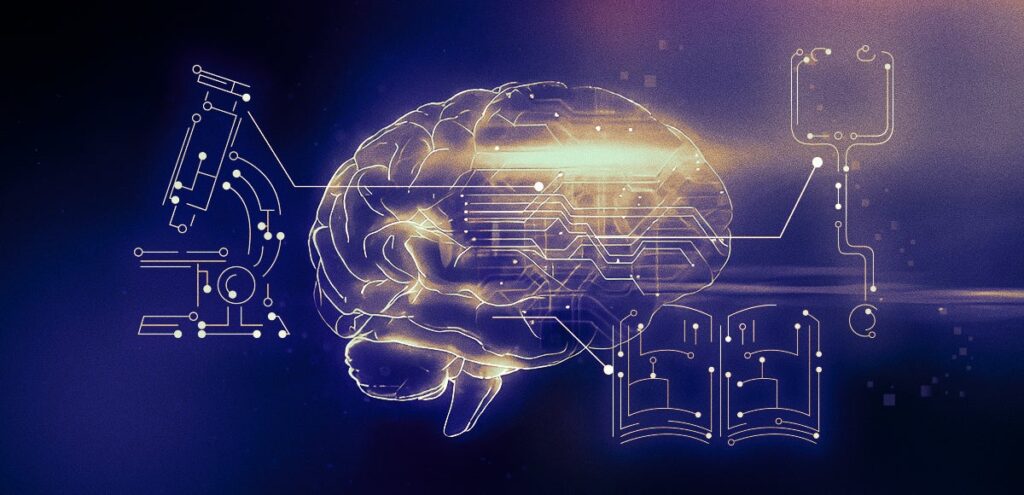SEO friendly content writing involves creating content that is optimized for search engines while still being engaging and valuable for readers. This type of writing incorporates relevant keywords and phrases that users are likely to search for, as well as headings and subheadings that make the content easy to scan.
By following SEO best practices and writing in an active voice, content writers can improve their chances of ranking higher in search engine results and attracting more organic traffic. With the right balance of keyword optimization and informative, compelling writing, SEO friendly content can help businesses increase their online visibility and drive more conversions.

Credit: www.mastersinai.org
What Is Ai
AI, short for Artificial Intelligence, refers to the simulation of human intelligence in machines that are programmed to think and learn like humans. It involves the development of algorithms and systems used to perform tasks that typically require human intelligence, such as visual perception, speech recognition, decision-making, and natural language understanding. AI is a fast-evolving field that has the potential to revolutionize multiple industries and change the way we live and work.
Definition Of Ai
AI can be defined as a branch of computer science that focuses on creating intelligent machines that can recognize patterns, learn from experiences, and make decisions based on data. The ultimate goal of AI is to develop machines that can perform tasks that would normally require human intelligence, without being explicitly programmed to do so.
Types Of Ai
There are different types of AI that can be classified based on their capabilities and functions. These include:
- Reactive Machines: These are the most basic forms of AI that can only react to specific situations. They don’t have memory or the ability to learn from past experiences. Examples of reactive machines are chess-playing computers that can analyze the current state of the game and make moves based on that information.
- Limited Memory AI: These AI systems have the ability to learn and make decisions based on past experiences. They can store and recall information to improve their performance over time. Self-driving cars use limited memory AI to make decisions based on previous encounters and adapt to different road conditions.
- Theory of Mind AI: This type of AI aims to develop machines that can understand and interpret human emotions, intentions, and beliefs. Theory of Mind AI can be used in applications like customer service chatbots that can empathize with users and provide personalized responses.
- Self-Aware AI: This is the most advanced form of AI that is currently theoretical and not yet achieved. Self-aware AI would possess consciousness and self-awareness like human beings, enabling them to have thoughts, emotions, and a sense of identity.
The History Of Ai
The history of AI is a fascinating journey that showcases the continuous evolution of technological advancements. From early concepts to present-day AI masters, this field has revolutionized industries and holds immense potential for future innovations.
Origins Of Ai
The history of AI dates back to the mid-20th century, when scientists and researchers began exploring the concept of creating machines that could think and learn like humans. The term “artificial intelligence” was coined in 1956 during the Dartmouth Conference, where experts from various fields gathered to discuss the possibilities of creating intelligent machines.
Inspired by the human brain and its ability to process information, early pioneers such as Alan Turing and John McCarthy laid the foundation for AI as we know it today.
Major Milestones In Ai Development
Since its inception, AI has come a long way, achieving significant milestones along the journey towards its development. Some of the major milestones include:
- 1950 – Turing Test: Alan Turing proposed the concept of a test to determine a machine’s ability to exhibit intelligent behavior equivalent to that of a human.
- 1956 – Logic Theorist and General Problem Solver: Researchers developed programs capable of solving complex mathematical problems and general logical reasoning. These early advancements highlighted the potential of AI in problem-solving tasks.
- 1967 – Dendral: The creation of Dendral, an AI program capable of identifying organic compounds using mass spectrometry data, marked a significant breakthrough in the field of AI applications.
- 1997 – Deep Blue defeats Garry Kasparov: IBM’s chess-playing computer, Deep Blue, defeated world chess champion Garry Kasparov, showcasing AI’s ability to outperform human experts in specific domains.
- 2011 – Watson wins Jeopardy!: IBM’s Watson, a question-answering AI system, won against human contestants on the popular game show Jeopardy!, further demonstrating AI’s potential in natural language processing and understanding.
- 2012 – ImageNet Challenge: The ImageNet Challenge marked a significant milestone in AI’s ability to recognize and classify objects in images, with deep learning algorithms outperforming traditional computer vision techniques.
These milestones represent just a fraction of the advancements that have shaped the history of AI and propelled its growth. With each achievement, the boundaries of what is possible continue to expand, paving the way for a future where AI becomes an integral part of our daily lives.
Real-world Applications Of Ai
In today’s ever-evolving world, Artificial Intelligence (AI) has become a game-changer across various sectors. From healthcare to finance, transportation to customer service, AI has found real-world applications that have the potential to transform these industries and improve human lives. In this blog post, we will explore how AI is being utilized in different sectors, highlighting its remarkable impact and benefits.
Ai In Healthcare
AI has revolutionized healthcare by bringing unprecedented advancements in diagnosis, treatment, and patient care. By analyzing vast datasets and identifying patterns, AI algorithms can help doctors make accurate and timely diagnoses. Additionally, AI-powered robotic surgery systems enhance precision, reduce human error, and speed up procedures. From predicting disease outbreaks to optimizing treatment plans, AI in healthcare has the potential to improve both patient outcomes and operational efficiency.
Ai In Finance
Finance is another sector where AI is making a remarkable difference. Through machine learning algorithms, AI can analyze financial data, detect fraud, and predict market trends. AI-powered chatbots and virtual assistants are transforming the banking industry by providing personalized customer experiences and answering queries efficiently. Furthermore, AI algorithms can perform complex calculations and risk assessments at a speed that surpasses human capabilities, improving investment strategies and financial decision-making.
Ai In Transportation
The transportation industry is witnessing a significant transformation with the integration of AI. Intelligent routing systems powered by AI optimize traffic flows, reduce congestion, and minimize travel time. AI algorithms are also being used in self-driving vehicles, enabling them to navigate routes, detect obstacles, and improve overall road safety. Additionally, AI-driven predictive maintenance helps transportation companies identify potential equipment failures before they occur, ensuring uninterrupted operations and efficient logistics management.
Ai In Customer Service
Customer service is being revolutionized by AI technologies. Virtual assistants powered by AI can handle a wide range of customer inquiries, providing instant responses and personalized recommendations. Natural language processing algorithms enable these virtual assistants to understand and respond to customers’ queries in a human-like manner. With AI in customer service, companies can enhance customer satisfaction, streamline processes, and reduce response times, ultimately improving overall customer experience.
Ethical Considerations In Ai
The development and implementation of artificial intelligence (AI) technologies have brought about numerous benefits and advancements in various fields. However, along with these developments, there also come important ethical considerations that need to be addressed. In this blog post, we will explore some of the key ethical considerations in AI and how they impact our society. Specifically, we will discuss biases in AI algorithms, privacy concerns with AI, and the potential impact of AI on job displacement.
Biases In Ai Algorithms
One of the key ethical considerations in AI is the presence of biases in AI algorithms. AI algorithms are designed to learn from data and make decisions based on patterns and correlations. However, if the data used to train these algorithms contain biases, it can lead to discriminatory outcomes. For example, if a facial recognition AI algorithm is trained using data that over-represents certain racial or ethnic groups, the algorithm may have difficulty accurately identifying individuals from underrepresented groups.
Addressing biases in AI algorithms is crucial to ensure fairness and equal treatment for all individuals. AI developers and researchers must carefully consider the sources and quality of the data used for training AI algorithms, as well as continuously monitor and test these algorithms for biases. Furthermore, organizations and policymakers need to establish guidelines and regulations that promote ethical practices in AI development and usage.
Privacy Concerns With Ai
With the increasing use of AI technologies, privacy concerns have become a major ethical consideration. AI systems often rely on collecting and analyzing large amounts of data, including personal and sensitive information. This raises concerns about data privacy and potential misuse of personal information.
To address these concerns, it is necessary to establish robust data protection measures and regulations that govern the collection, storage, and use of personal data in AI systems. Transparency and informed consent are key principles that need to be upheld to ensure individuals are aware of how their data is being used and have control over its use. Additionally, responsible AI practices should include implementing strong security measures to protect data from unauthorized access or breaches.
Ai And Job Displacement
Another ethical consideration in AI revolves around the potential impact on job displacement. AI technologies have the potential to automate various tasks and processes that were previously performed by humans. While this can lead to increased efficiency and productivity, it can also result in job losses and economic inequality.
Ensuring ethical practices in AI development involves not only creating AI systems that enhance human capabilities but also considering the potential consequences for the workforce. This includes investing in retraining and upskilling programs to help individuals adapt to the changing job landscape. Additionally, fostering a collaborative approach between AI systems and human workers can help create a symbiotic relationship where both can thrive.
In conclusion, ethical considerations in AI are of paramount importance as these technologies continue to advance. By addressing biases in AI algorithms, protecting data privacy, and considering the impact on job displacement, we can strive towards the responsible development and usage of AI that benefits society as a whole.
Ai And Human Intelligence
In today’s era of advancing technology, Artificial Intelligence (AI) has emerged as a powerful tool that complements or even surpasses human intelligence in certain areas. This has sparked an ongoing debate on the comparison between AI and human intelligence. Let’s explore the different aspects of this discussion.
Ai Vs Human Intelligence
When it comes to AI versus human intelligence, it is essential to understand their fundamental differences. AI refers to the intelligence demonstrated by machines, while human intelligence is the unique cognitive ability possessed only by humans.
The Turing Test
One of the methods to determine the capabilities of AI is through the Turing Test. Proposed by Alan Turing in 1950, this test aims to evaluate a machine’s ability to exhibit intelligent behavior indistinguishable from that of a human.
The Impact Of Ai On Human Skills
AI has significantly impacted human skills in various domains. It has brought about remarkable changes in fields like healthcare, finance, and manufacturing. Here are some key points to consider:
- Automation: AI has automated numerous routine and repetitive tasks, freeing up human resources for more innovative and complex activities.
- Data Analysis: AI algorithms can process vast amounts of data quickly and accurately, providing valuable insights and aiding decision-making processes.
- Enhanced Efficiency: AI technologies optimize workflows, enhancing operational efficiency and providing organizations with a competitive advantage.
- Cognitive Assistance: AI-powered systems can augment human capabilities by offering assistance in areas that require extensive knowledge and analysis.
This shift in the dynamics between humans and machines has increased the importance of developing certain skills to thrive in the AI-driven world:
- Adaptability: As AI continues to evolve, individuals must possess the ability to adapt to new technologies and leverage them effectively.
- Complex Problem Solving: While AI can solve many problems, complex and abstract problems often require human reasoning and creativity.
- Interpersonal Skills: Human interaction and emotional intelligence remain vital, as these capabilities are yet to be replicated by AI.
- Ethics and Decision-making: AI systems require human intervention to establish ethical frameworks and make crucial decisions.
In conclusion, AI and human intelligence have their own unique strengths and limitations. While AI excels in certain areas, human intelligence remains irreplaceable in others. By harnessing the power of both, we can maximize the potential of AI and continue to push the boundaries of human ingenuity.

Credit: m.youtube.com
The Future Of Ai
The future of AI holds limitless possibilities and promises to revolutionize various industries across the globe. As advancements in AI technology continue to accelerate, we can expect a transformative impact on multiple aspects of our lives. From enhancing efficiency and productivity to solving complex problems, AI is reshaping the world as we know it. Let’s explore some key areas where AI is making significant strides:
Advancements in AI technology have been nothing short of astounding. With the development of machine learning algorithms and deep learning neural networks, AI systems are becoming increasingly sophisticated and capable. These advancements have paved the way for a range of applications, such as natural language processing, computer vision, and predictive analytics, pushing the boundaries of what AI can achieve.
AI and robotics are converging to redefine numerous industries. The integration of AI algorithms and robotic systems has led to the creation of highly autonomous machines capable of performing complex tasks with precision and efficiency. From automated manufacturing processes to autonomous vehicles, the marriage of AI and robotics is driving innovation and transforming industries across the board.
AI is progressively being integrated into educational systems to revolutionize the way we learn and teach. With AI-powered tools, personalized learning experiences are becoming more accessible. Intelligent tutoring systems provide individualized support to students, adapting to their specific needs and enhancing the overall learning process. Additionally, AI-based analytics enable educators to gain deeper insights into student performance, allowing for targeted interventions to optimize learning outcomes.
In summary, the future of AI is brimming with immense potential. As advancements in AI technology continue to unfold, we can expect transformative developments in various sectors, from healthcare and finance to transportation and beyond. The integration of AI and robotics, along with the application of AI in education, represents just a glimpse of the groundbreaking possibilities yet to come.
Ai In Popular Culture
Artificial Intelligence (AI) has found its way into popular culture, captivating audiences across movies, literature, and video games. From intelligent robots to self-learning machines, AI has become a prominent theme that fascinates and challenges our imagination. This blog post explores how AI manifests in popular culture, delving into its portrayal in movies, literature, and video games.
Ai In Movies
AI has been a central theme in numerous movies, providing an intriguing portrayal of futuristic technology and its impact on society. From the iconic The Terminator series to the thought-provoking Ex Machina, these films explore the possibilities and dilemmas associated with AI. They create an immersive experience, showcasing the power, intelligence, and potential danger of AI systems.
Ai In Literature
Literature has also embraced the concept of AI, weaving intricate stories that explore the relationship between humans and machines. In Isaac Asimov’s classic novel series, The Foundation, AI takes the form of humanoid robots known as “positronic brains,” assisting humans in their quest for knowledge and survival. Other novels, such as William Gibson’s Neuromancer, delve into the repercussions of AI advancements, blurring the line between man and machine.
Ai In Video Games
Video games provide an interactive platform for players to experience AI in action. From the Portal series to Mass Effect, AI characters serve as companions, adversaries, or allies, enhancing the gaming experience. These digital entities possess their own personalities, making decisions, and reacting to the player’s actions, offering a glimpse into the potential future of advanced AI systems.
Overall, AI has become a captivating element of popular culture, permeating movies, literature, and video games. It allows us to explore the possibilities, ethical implications, and consequences of advanced AI technology. Whether they frighten or fascinate us, these portrayals contribute to our understanding and fascination with the ever-evolving world of artificial intelligence.

Credit: mim-guide.com
Ai And Ethics
Ai Master: Exploring the Intersection of AI and Ethics
Artificial intelligence (AI) has revolutionized many aspects of our lives, from virtual assistants to self-driving cars. However, as AI continues to advance, questions about its ethical implications are becoming more prominent. AI and Ethics is an essential topic that explores the potential risks and advantages of AI technology in various domains. In this section, we will delve into three critical aspects of AI and Ethics: AI and Bias, AI and Privacy, and AI and Accountability.
Ai And Bias:
Bias in AI systems can have significant consequences and perpetuate social inequalities. While AI algorithms are designed to be unbiased, they can inadvertently reflect the biases present in the data used to train them. This can lead to biased decisions in areas like hiring, lending, and law enforcement. It is crucial to recognize and address these biases to ensure fairness and equal opportunities.
Ai And Privacy:
Privacy concerns arise as AI systems collect and analyze vast amounts of personal data. Whether it’s facial recognition technology or predictive analytics, there is a need to establish clear regulations and guidelines to protect individuals’ privacy. Striking the right balance between innovation and data security is essential to maintain trust in AI technology.
Ai And Accountability:
As AI systems become more autonomous, the question of accountability arises. Who is responsible when an AI algorithm makes a mistake or causes harm? Ensuring accountability in AI development and deployment is crucial to address potential risks and ensure that the technology is used responsibly. It requires a collaborative effort from developers, policymakers, and users to establish ethical frameworks and regulations.
Frequently Asked Questions On Ai Master
What Is Ai Master And Why Is It Important?
AI Master is an advanced program that teaches individuals the skills needed to become experts in artificial intelligence. It is important because it provides in-depth knowledge and practical experience, allowing professionals to excel in the fast-growing and evolving field of AI.
What Are The Prerequisites For Joining The Ai Master Program?
To join the AI Master program, you should have a basic understanding of programming concepts and be familiar with math and statistics. It is also beneficial to have prior experience in computer science or related fields. However, the program is designed to cater to both beginners and experienced professionals.
How Long Does It Take To Complete The Ai Master Program?
The duration of the AI Master program varies depending on your pace and dedication. On average, it can be completed in 6-12 months. However, the program is self-paced, allowing you to learn at your own convenience and progress at a speed that suits you best.
Will I Receive A Certificate Upon Completing The Ai Master Program?
Yes, upon successfully completing the AI Master program, you will receive a certificate that validates your skills and knowledge in artificial intelligence. This certificate can enhance your career prospects and open up new opportunities in the field of AI.
Conclusion
To summarize, mastering AI is an essential skill in today’s digital landscape. It opens up countless possibilities for businesses, allowing them to streamline processes, enhance customer experiences, and stay ahead of the competition. By continuously improving your AI knowledge and skills, you can become a true AI master.
Embrace the potential of AI and let it empower your professional journey. Stay curious, keep learning, and unlock the full potential of AI.




